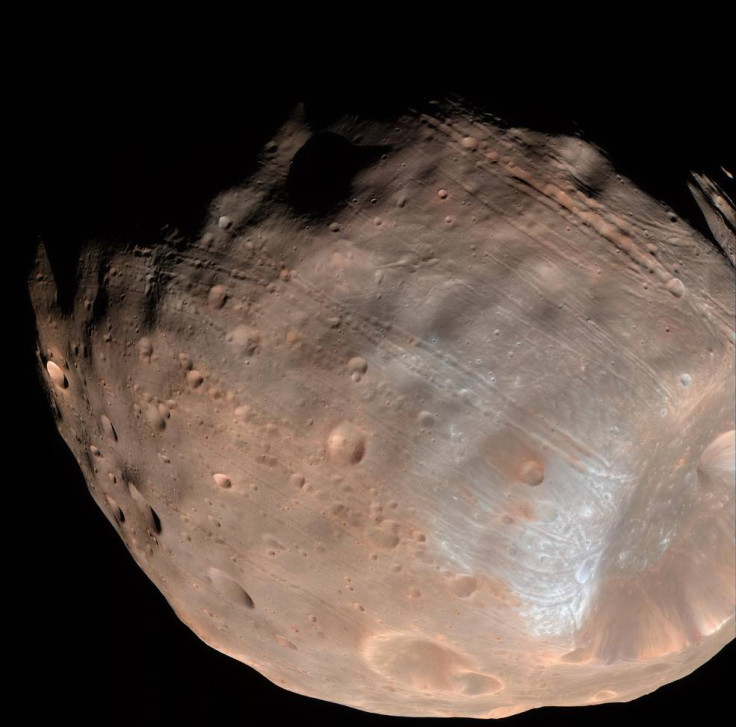Mars: Phobos moon is falling apart and will gone in 30 million years says Nasa

Phobos, one of the moons of Mars, is starting to fall apart and will be destroyed in the next 30- to 50-million years, Nasa has said. The space agency said shallow groves along its surface are probably the first signs of structural failure that will eventually tear it apart.
"We think that Phobos has already started to fail, and the first sign of this failure is the production of these grooves," said Terry Hurford of Nasa's Goddard Space Flight Centre. Phobos orbits just 3,700 miles (6,000km) above the surface of the Red Planet. It is the larger of Mars's two moons and is being drawn closer to its planet by around two metres every hundred years.
The grooves on the surface of Phobos were once thought to be fractures caused by an impact so powerful it had the potential to smash the moon into bits. However, researchers now say the groves do not radiate outwards – as they would if they were the result of a catastrophic collision – but that they come from a focal point.
Modelling has now suggested these grooves are sort of like stretch marks caused by tidal forces from the gravitational pull between Phobos and Mars. While researchers once thought Phobos was too solid to be torn apart, they now think the satellite's interior is very unstable, like a big pile of rubble, surrounded by just a thin layer of surface material.
When the tidal forces were calculated, researchers found it would be enough to crack and destabilise Phobos. With little strength to hold itself together from the inside, the outer layer readjusts and as stress builds fractures form on the surface.
While our moon is more solid inside and so will not fall apart, the team says Neptune's moon Triton may face the same fate as Phobos, eventually collapsing in on itself. Furthermore, they said this could also hold true for some exoplanets: "Any kind of planet falling into its host star could get torn apart in the same way," Hurford added.
© Copyright IBTimes 2025. All rights reserved.






















